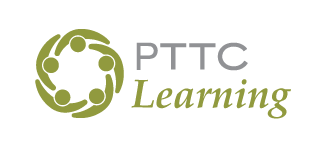
Overview
This 7-week series offers participants a unique, interactive experience to explore how to develop a sustainability plan. Sustainability planning is an intentional process of looking critically at your current prevention infrastructure, processes, and strategies to develop the necessary resources to sustain meaningful prevention outcomes beyond current funding. Sustainability planning involves a series of concrete tasks to create feasible, ongoing support for essential components of your prevention work. Elements of sustainability planning include examining the impact of strategic planning processes, such as SAMSHA’s Strategic Prevention Framework (SPF) and interventions, priority setting, resource and feasibility analysis, communication planning, and resource and grant development.
Trainers will demonstrate how to use a set of tools to facilitate a sustainability process with community partners and will coach participants to set actionable steps and timelines to complete a plan over the next year. The distance learning series will include skill-based learning opportunities, individual and group activities, reading assignments, and group discussions.
When:
Dates: May 21, 28, June 4, 11, 18, 25, and July 2, 2024
Time:
12:00 PM – 1:30 PM Alaska
1:00 PM – 2:30 PM Pacific
2:00 PM – 3:30 PM Mountain
Trainers:
Susannah Burt has been working in Substance Abuse and Mental Illness Prevention since 2001. She has implemented the Strategic Prevention Framework since 2003 and has trained on the model since 2006. Professionally, it has been part of her responsibility to work with the evaluators and review data for state and local communities for assessments. She has worked to develop an evaluation plan for environmental strategies, including policies and campaigns. Ms. Burt is currently working on securing ongoing private and public funding for coalitions in her local area. Ms. Burt currently sits on her local Communities that Care coalition in Utah. She received her Bachelor’s Degree from Weber State University and works for Weber Human Services.
Objectives:
- Define sustainability and summarize key findings from research
- Explain the value of sustainability planning to community stakeholders
- Share how partnerships and collaborations provide the foundation for sustainability
- Identify and recruit partners to participate on a Sustainability Planning Team (SPT)
- Summarize five components of sustainability planning
- Collect information and capture lessons learned throughout the Strategic Prevention Framework process
- Gather information and document lessons learned from interventions.
- Develop communication products as part of ongoing sustainability effort
- Outline key tasks that inform a written sustainability plan.
- Establish a timeline to create a sustainability plan.
- Apply a set of tools to create a sustainability plan with community partner
Audience:
- Community, state and tribal substance misuse prevention practitioners and prevention practitioners located in the Northwest (HHS Region 10) states of Alaska, Idaho, Oregon and Washington.
- Please note: This training is reserved for prevention professionals working in HHS Region 10.
- Prevention professionals interested in this course but who work outside of HHS Region 10 are encouraged to contact their region’s PTTC to learn about similar courses available to them.
Participant Commitment and Expectations:
- View a 20-minute video on how to maximize the video conferencing platform and complete the Session 1 prep packet prior to the first session on Tuesday, May 21, 2024
- Participate in 7 sessions of training, for 1.5 hours on scheduled series days/times
- Complete up to ONE hour of independent learning activities between each session
- Use a web-camera and have access to appropriate technology to join the online videoconferencing platform (i.e., internet connection, built-in or USB webcam, laptop/tablet, built-in/USB/Bluetooth speakers & microphone)
- Actively engage and be on camera 90% of the time during each session, since this is not a webinar series and active participation is essential to gain/improve skills.
Please Note:
This EPLS is not a webinar series. Active participation in each session is essential to gain and improve skills. If you cannot attend these sessions, you will forfeit your attendance.
The Northwest PTTC is committed to the safety of all participants. Driving while participating in these sessions is strongly discouraged, as it is seen as a danger to the participant. If driving cannot be avoided during your scheduled session for any reason, please contact the PTTC staff at pttclearning@casat.org.
In addition, it is expected that participants will have access to the appropriate technology by Tuesday, May 21, 2024 in order to fully participate and be on camera at least 90% of the time.
If you have questions regarding technology requirements or registration details contact pttclearning@casat.org.
Certificates:
Participants who complete the entire course will receive a certificate of attendance for 17.5 hours. Partial credit will be considered if a participant completes over 80% of the course and submits completed prep packets to the course facilitator for review for any missed session. Participants will need to confirm with their certification board to determine if these certification hours are accepted towards their specific certification requirements.
To help make engagement more comfortable, we limit the number of people who can enroll in EPLS. If you cannot commit to joining the sessions or completing the prep-work packets, please defer this opportunity to others on our waiting list.
The Northwest PTTC is a collaboration led by Social Development Research Group at the University of Washington in partnership with Washington State University, and CASAT at the University of Nevada, Reno.

